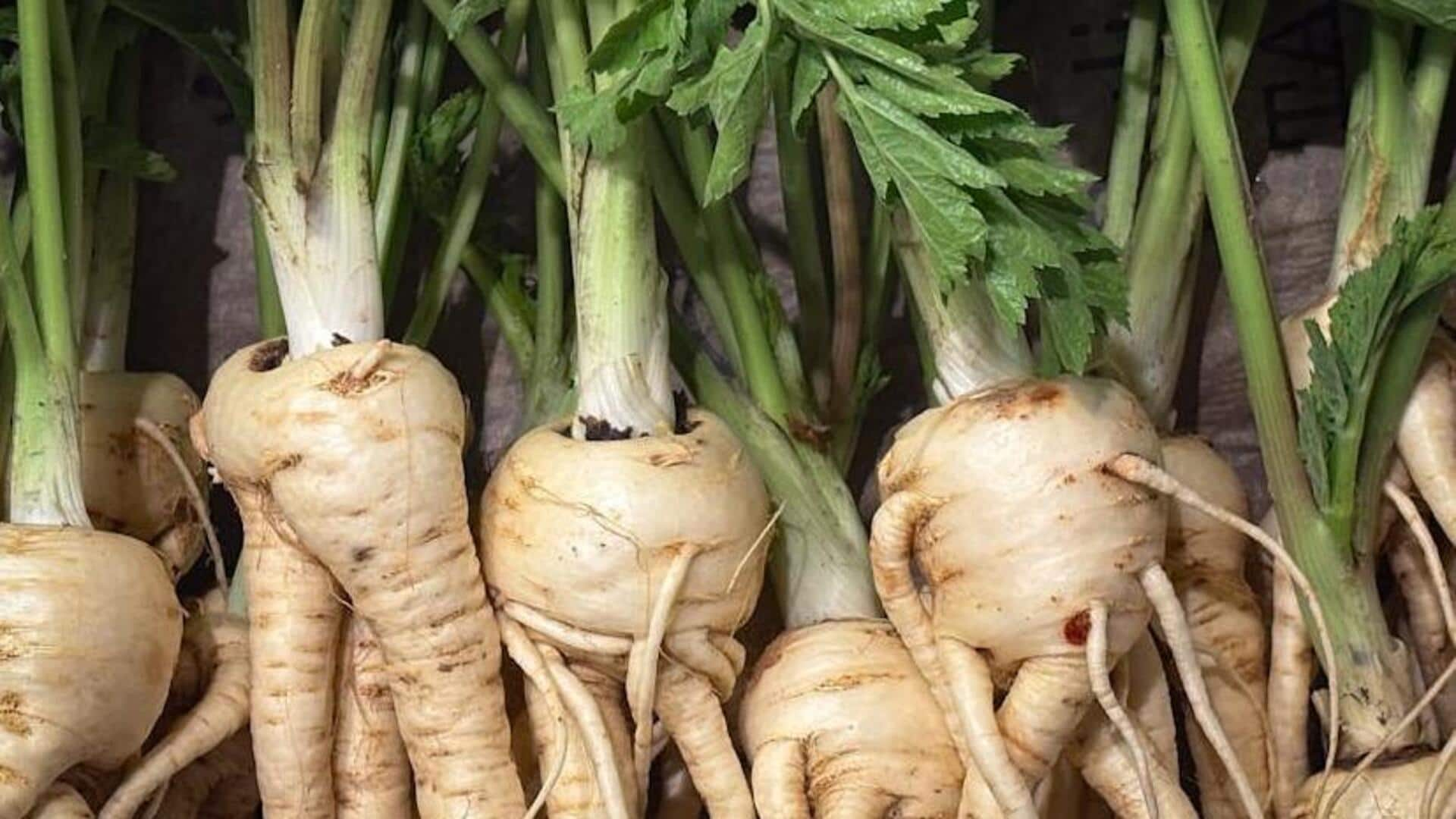Essential tips for growing parsnips in your garden
What's the story
Parsnips, boasting a sweet and earthy flavor, are a cold-weather root vegetable that brings a unique touch to your meals.
Growing parsnips requires a bit of patience due to their long growing season, but the payoff of harvesting this nutritious vegetable makes it all worthwhile.
Here are five key tips to help you grow a bountiful crop of parsnips in your garden.
Site selection
Select the right site and soil
Parsnips require a sunny location and well-drained soil for optimal growth.
They thrive in slightly acidic to neutral soil with a pH ranging from six to seven.
Prior to planting, preparing the bed is essential. Remove any stones and break up compacted soil to allow the roots to penetrate deeply and grow straight.
Incorporating organic matter such as compost enhances soil fertility and structure.
Timing is key
Sow seeds at the correct time
The ideal time to plant parsnip seeds is early spring, as soon as the soil is workable.
Parsnips need a long growing season (120 to 180 days), so it's crucial to plant them early.
Parsnip seeds are notorious for their slow germination. To hasten the process, soak the seeds overnight before planting. This will ensure quicker germination.
Thinning out
Thin seedlings promptly
Once your parsnip seedlings have emerged and reached about an inch in height, it's time to thin them out.
You should thin the seedlings to a spacing of about two to three inches apart.
This distance ensures each plant has sufficient room to grow and develop without competing for resources or space.
Watering wisely
Keep soil consistently moist
Parsnips need steady moisture during their growth period, particularly in times of drought.
Strive for a minimum of one inch of water weekly, either through rainfall or additional watering as needed.
Applying mulch around your plants aids in maintaining soil dampness and minimizing weed growth, which can compete with your parsnips for nutrients.
Pest prevention
Guard against pests and diseases
Though parsnips are relatively robust, they can fall prey to pests (think carrot fly) and diseases like root rot when conditions aren't quite right.
Rotate your crops at least every three years to keep diseases from getting too cozy in your soil.
Floating row covers are your secret weapon against pests for those young plants - no chemicals needed!
